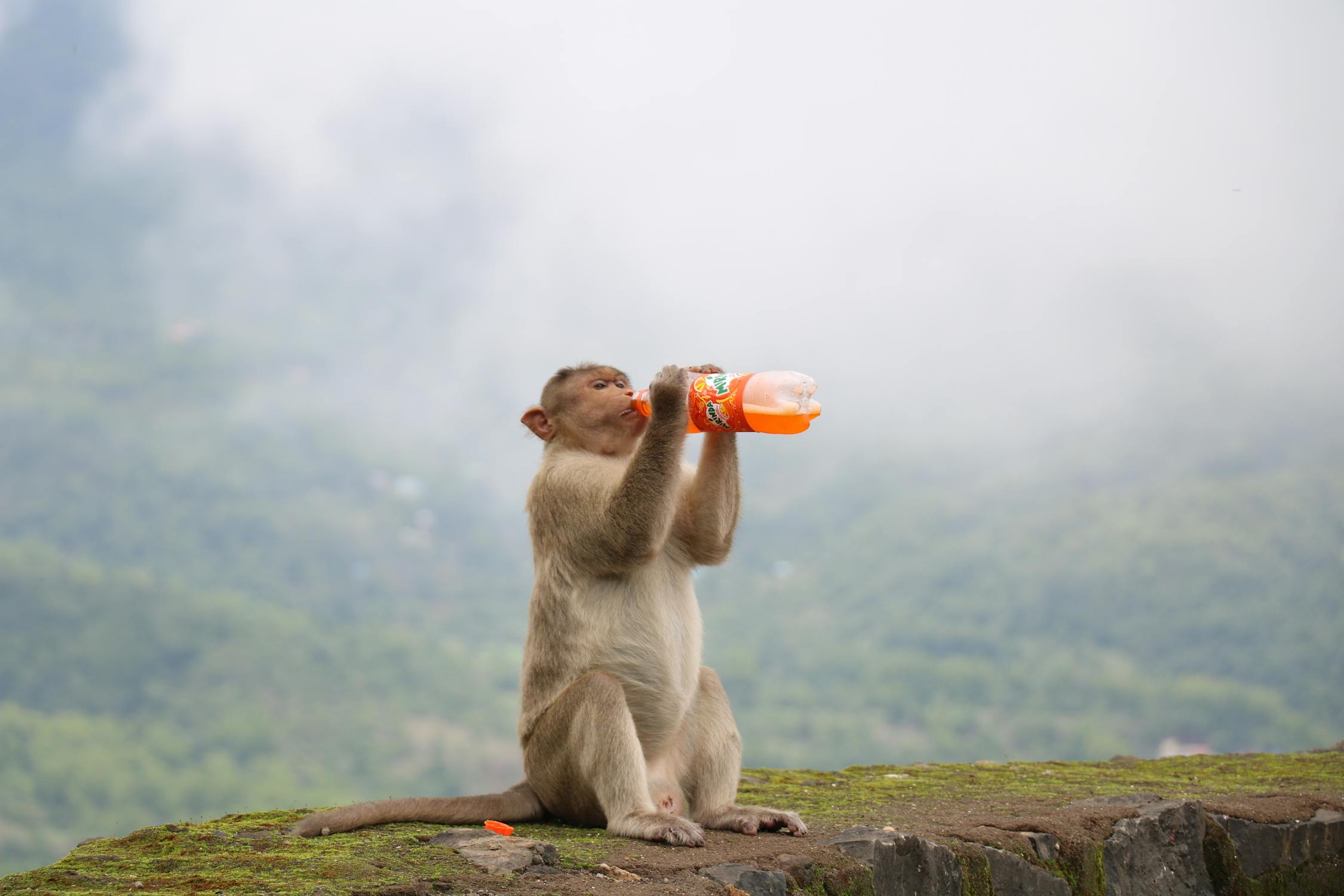
Brown Monkey Drinking Fanta Bottle · Free Stock Photo
Do Monkeys Get Drunk? These Scientists Found Out. - InsideHook Leisure > Drinks Do Monkeys Get Drunk? These Scientists Found Out. An especially challenging type of research By Tobias Carroll April 24, 2022 7:04 pm Do humans have an evolutionary reason for drinking alcohol? Jared Rice/Unsplash

Why do we drink alcohol? The Drunken Monkey Argument YouTube
By Wynne Parry. published 11 April 2014. Robert Dudley, in his new book "The Drunken Monkey: Why We Drink and Abuse Alcohol," delves into the evolution of humans' and other animals' attraction to.

How we evolved from drunken monkeys to boozy humans — Quartz
The researchers found that the fruit that spider monkeys sniffed and took a bite out of routinely had alcohol concentrations of between 1% and 2%, about half the concentration of low-alcohol.
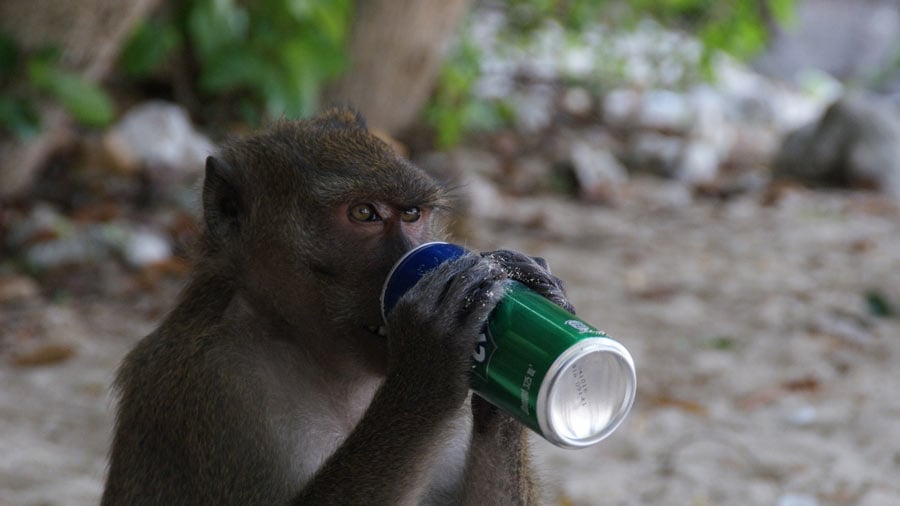
It’s Monkey Business! Human Desire For Alcohol Consumption Is Hardwired Ancient Origins
Monkeys often eat fruit containing alcohol, shedding light on our taste for booze By Robert Sanders A new study of black-handed spider monkeys in Panama shows that they seek out and eat fruit that is ripe enough to have fermented, containing as much as 2% ethanol.

"A Monkey Drinking A Beer At The Beach" by Stocksy Contributor "Mauro Grigollo" Stocksy
Scientists analyzed the ethanol content of fruit eaten by spider monkeys in Panama, and found that the fruit regularly contained alcohol: between 1% and 2%. The researchers also collected urine.
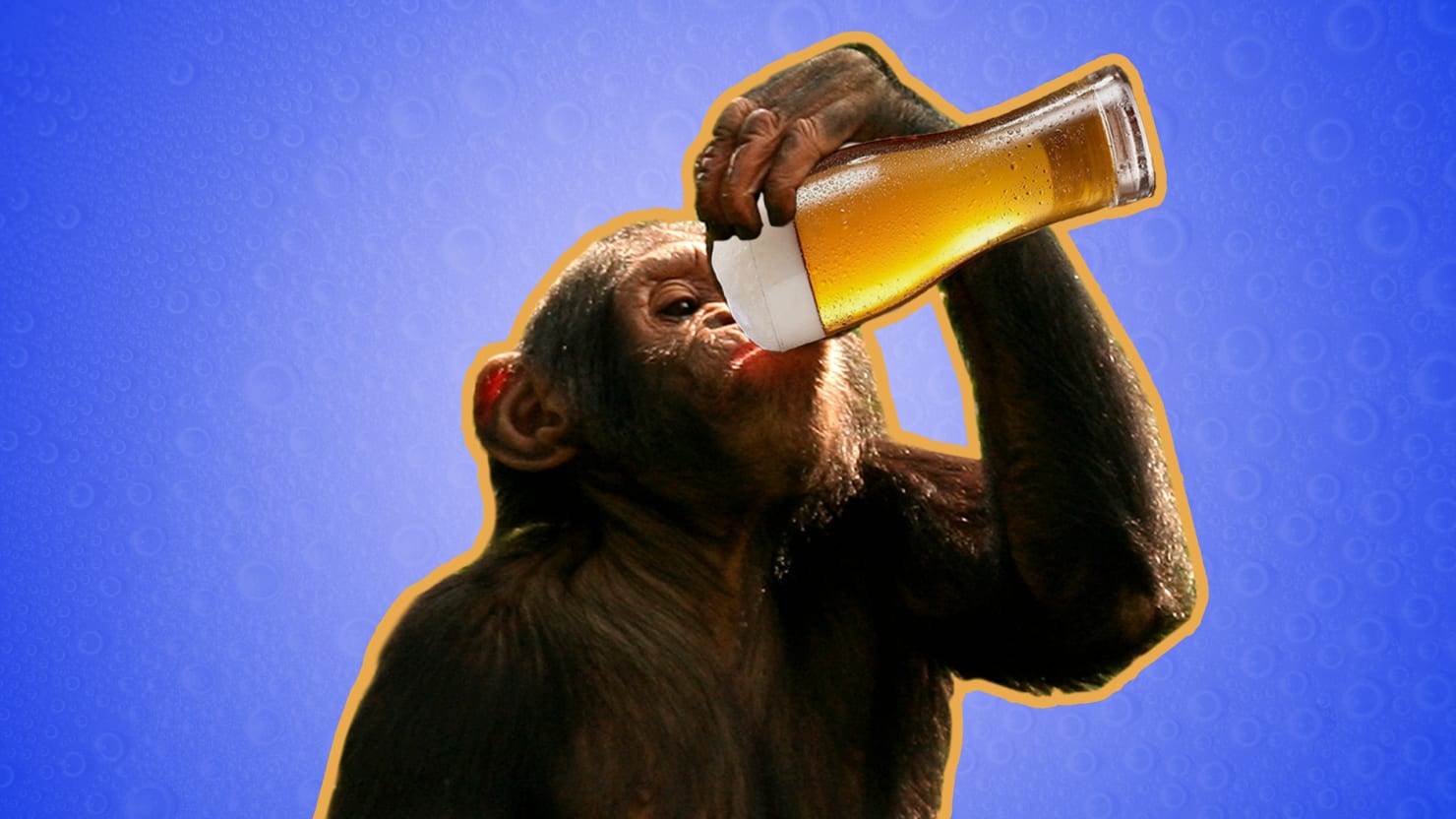
Drunk Chimps A Clue to Human Evolution
Breakthrough treatment reduces drinking by 50% in alcoholic monkeys. Vervet monkeys, which can have an innate preference for consuming alcohol, have been known to steal drinks from customers in bars.

Singes alcooliques
Drinking-dependent volume reductions of cerebral cortex in the rhesus macaque. (a) Mean daily ethanol intake for each of the 18 monkeys is shown over the course of the experiment. Throughout the 3-month ethanol drinking period, each monkey consumed 1.0 g/kg of ethanol per day.
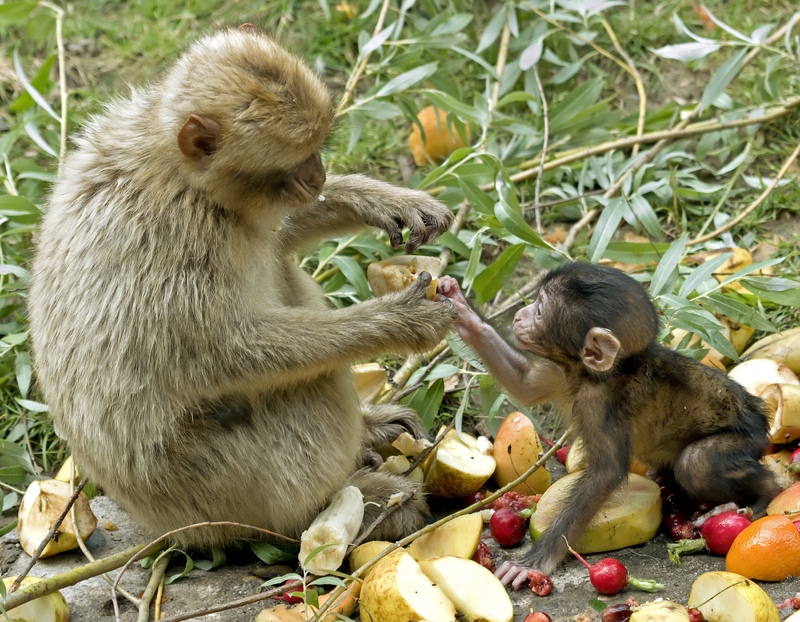
Drunken Monkeys Does Alcoholism Have an Evolutionary Basis? Live Science
The 'drunken monkey' hypothesis proposes that alcohol, and primarily the ethanol molecule, is routinely consumed by all animals that eat fruits and nectar. As first worked out by Louis Pasteur.

Alcoholic monkeys New treatment reduces drinking by 50, could help humans next Trending News
Scientists find out the truth - Discover Wildlife. It's well known that certain non-human primates enjoy a drop of the hard stuff. Now a new study explains why we rather enjoy it too.
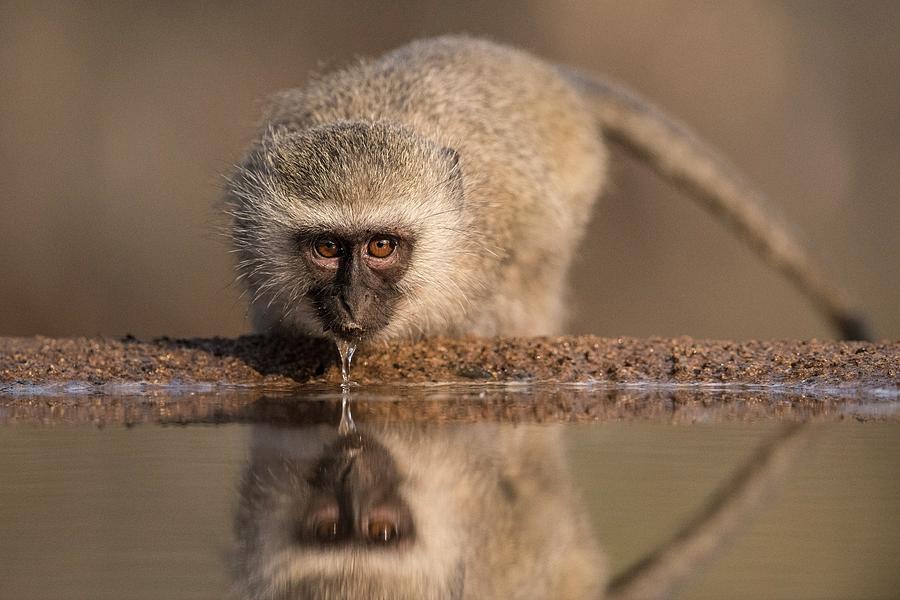
Vervet Monkey Drinking Photograph by Tony Camacho
Significant brain volume shrinkage occurred in the cerebral cortices of monkeys drinking ⩾ 3 g/kg ethanol/day (12 alcoholic drinks) at 6 months, and this persisted throughout the period of.
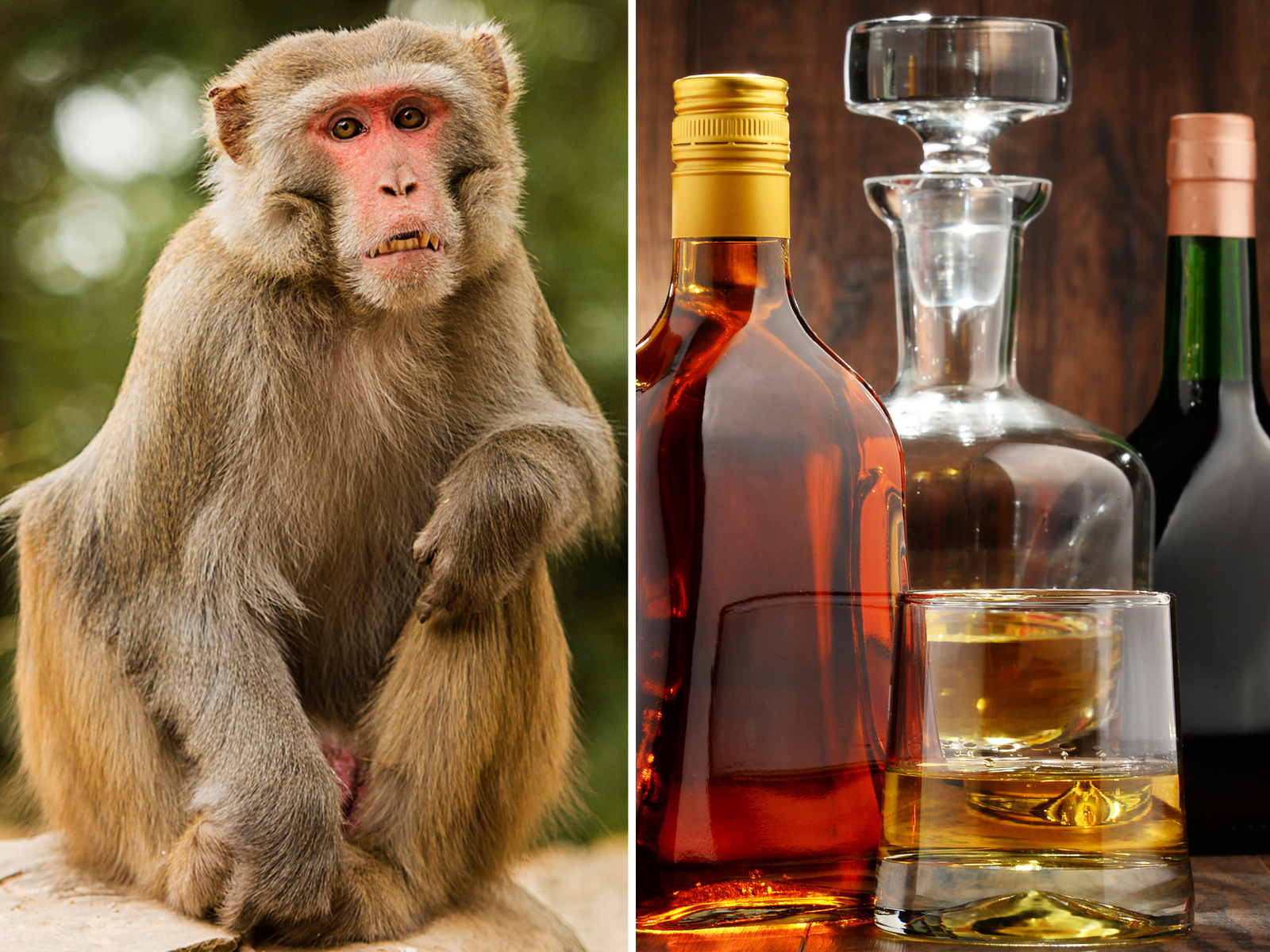
Alcoholic Monkey Goes on Rampage, Attacks Booze Shops Across City
Monkeys Love Their Alcohol But proving the "drunken monkey" hypothesis has been an exhausting—and messy—endeavor. by Sarah Durn April 21, 2022 A new study finds that black-handed spider monkeys.
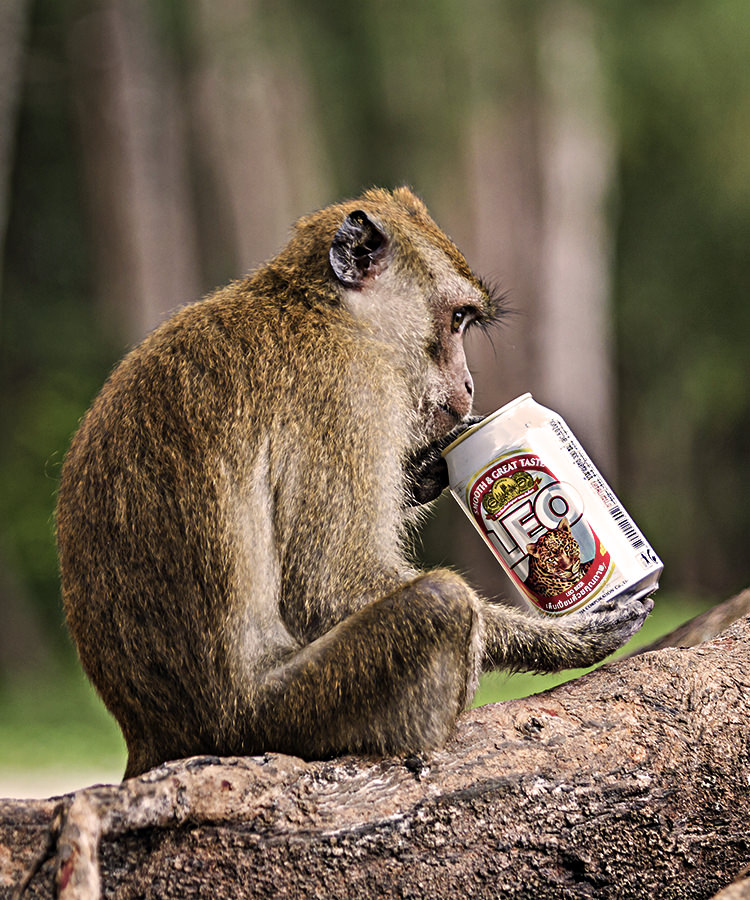
Drunken Monkeys A Scientific Explanation for Our Drinking VinePair
July 1, 2014 Ever since childhood, when he saw his father descend into alcoholism, evolutionary physiologist Robert Dudley has been curious about humans' strong attraction to booze. Why do we drink alcohol? The Drunken Monkey Argument Evolutionary biologist Robert Dudley discusses his new book and implications for understanding alcoholism.

Drunken Monkeys A Scientific Explanation for Our Drinking VinePair
Vervet monkeys living free on the Caribbean island of St Kitts have also developed a taste for alcohol and are infamous for stealing cocktails from tourists. JohnDowner/BBC Worldwide. Studies.

How the Drunken Monkey Hypothesis Explains Our Taste for Liquor The Atlantic
Vervet monkeys with a strong preference for ethanol that were given an FGF21 analogue consumed 50% less alcohol. The study also studied the brain circuits involved in mice and found that the.
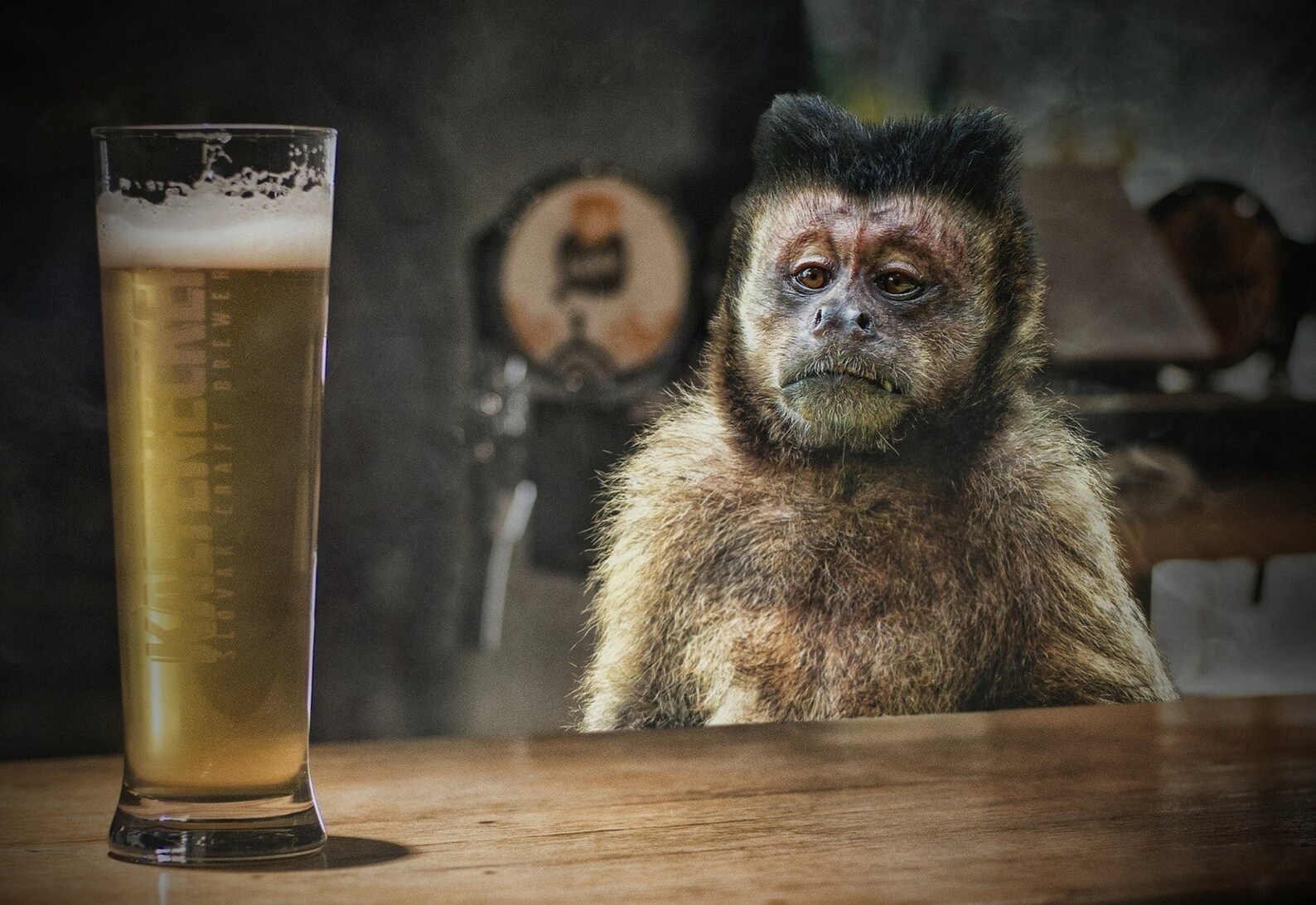
Drunk Monkey Art With a Variety of Sizes You'll Love. Etsy
Behavioral flexibility was assessed in 12 monkeys (n=9, ethanol drinkers) with a set-shifting visual discrimination procedure before alcohol self-administration and while maintaining consumption of 1.5g/kg/day ethanol. Task performance was assessed the morning after ~18 hours of drinking 1.5g/kg, and 1 hour before the next day's drinking.
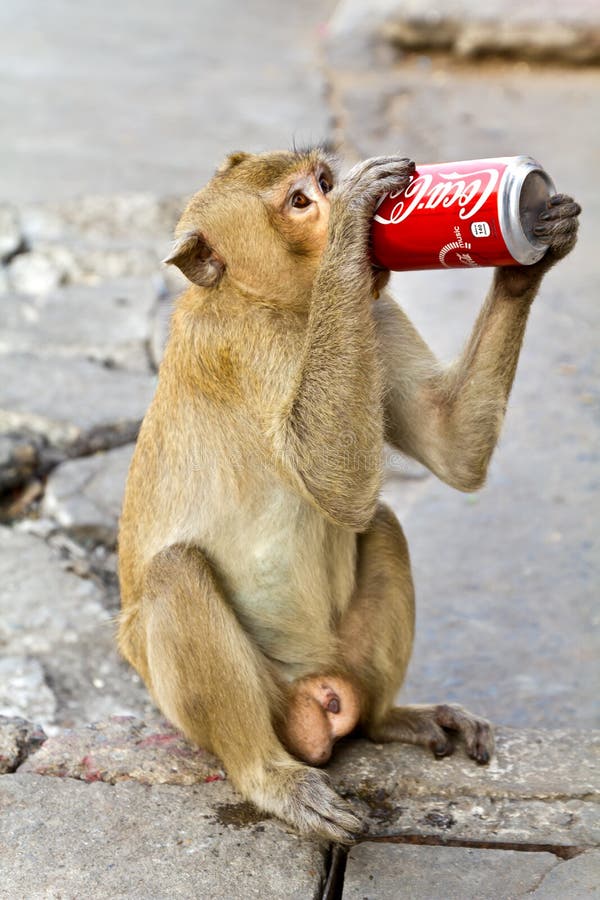
Monkey Enjoys Drinking Editorial Photography Image 23409512
A single shot — a gene therapy injected into the brain — dramatically reduced alcohol consumption in monkeys that previously drank heavily. If the therapy is safe and effective in people, it might one day be a permanent treatment for alcoholism for people with no other options.